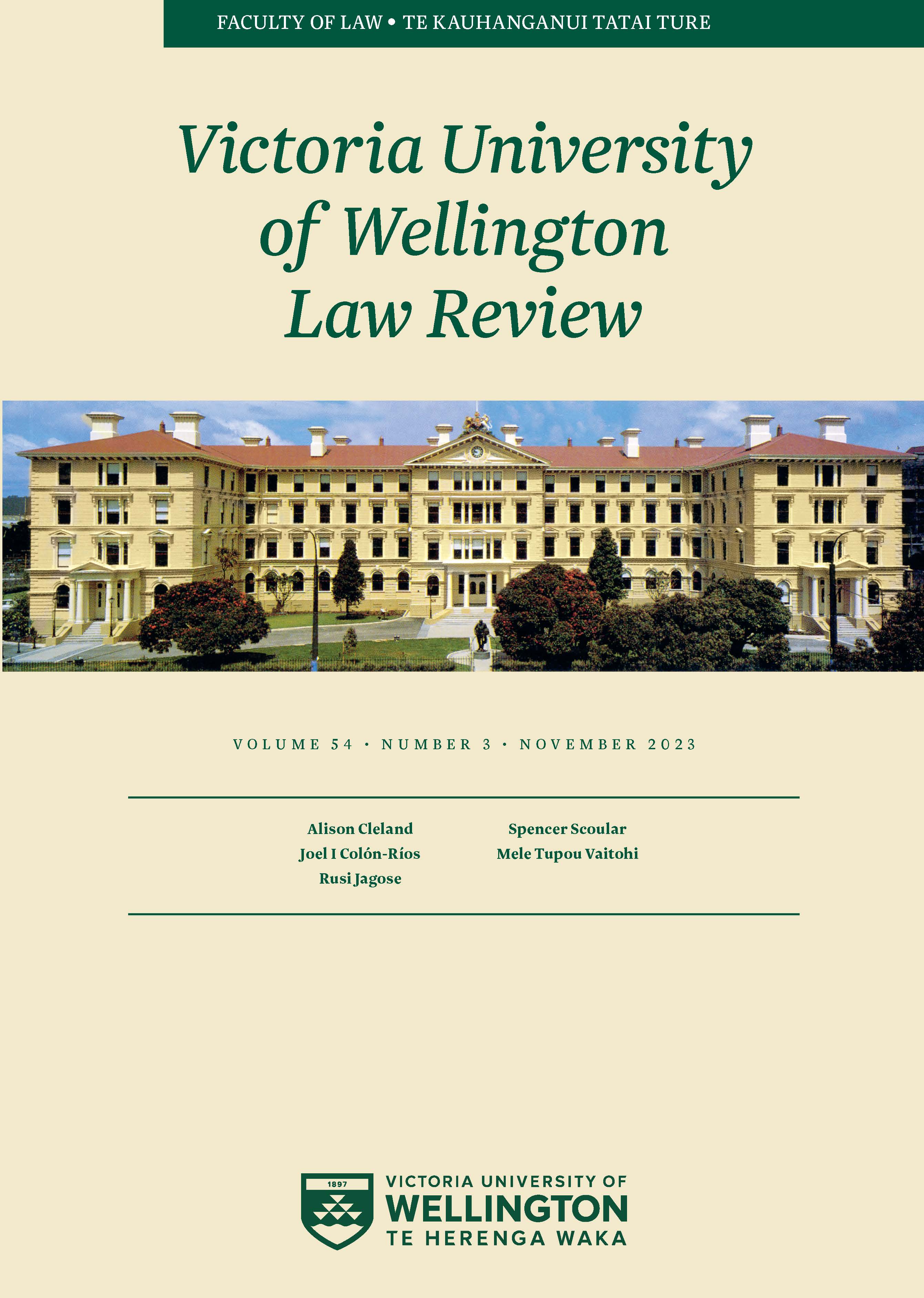State-Sponsored Abduction to Enforce British Law for Aotearoa New Zealand Pre-Annexation
DOI:
https://doi.org/10.26686/vuwlr.v54i3.8789Abstract
Prior to the annexation of Aotearoa New Zealand in 1840, British authorities sponsored and practised the abduction of suspects from the islands of New Zealand to New South Wales and Van Diemen's Land, where they could be charged and tried before British courts for infringing laws for New Zealand passed by the British Parliament, as well as orders for New Zealand issued by governors of New South Wales. The sponsorship and practice of state-sponsored abduction occurred in two distinct periods: between 1814 and 1823, governors of New South Wales sponsored "magistrates" to practise abduction; and, between 1833 and 1840, the British Government sponsored British Residents to practise abduction. Specific cases are examined where the sponsorship of abduction was put into practice. The unlawful, expensive and impractical nature of state-sponsored abduction contributed to the ineffectiveness of the British system of law and order for New Zealand pre-annexation, which ultimately influenced Britain's decision to annex New Zealand after first signing a treaty with Māori. With the arrival of Hobson, the signing of te Tiriti o Waitangi/the Treaty of Waitangi and Britain's annexation of New Zealand in 1840, state-sponsored abduction became unnecessary and was quietly discontinued.
Downloads
Downloads
Published
How to Cite
Issue
Section
License
Authors retain copyright in their work published in the Victoria University of Wellington Law Review.


